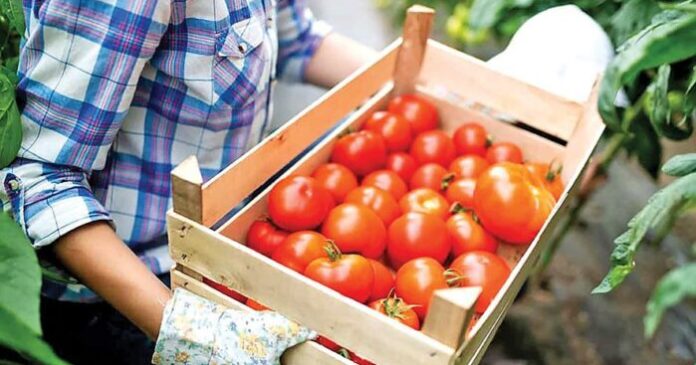The Competition Commission has found that small enterprises owned by black people are finding it difficult to supply goods and services to large retailers.
This is according to Hardin Ratshisusu, the deputy commissioner of the Competition Commission. He was releasing the Fresh Produce Market Inquiry provisional report.
“There is still slow progress in integrating SMEs, particularly those owned by historically disadvantaged people, into various retailers’ supply chains,” said Ratshisusu.
The fresh produce sector’s prices are transparent enough to allow a customer to make comparisons. This was because retailers use unit pricing instead of measuring per kilogram, the report said.
“Retailers should ensure that they should also be per kg or gram pricing displayed in unit prices in their stores. This in addition to unit prices displayed on various fresh produce,” he said.
The report also raised concerns over the skyrocketing cost of seeds. It revealed that seed prices were on the rise, solely because the firms saw a long-term supply advantage.
South Africa, according to the inquiry, relied extensively on imported seeds. And this endangers the sector in consideration of global risks.
Sowing seeds of exploitation
“In the seeds industry, the inquiry found instances where the firm seems to be involved in charging farmers what could be characterised as exploitive prices,” said Ratshisusu.
“The inquiry noted that price increases for certain seeds were where this firm has very high market shares and have been sustained over a period of time. In addition, access issues have also been uncovered in relation to potato seeds,” he added.
The commission’s provisional report has also revealed that the fresh produce market was estimated at around R53-billion.
He explained that R32-billion was sold through formal retail. This while R21-billion was sold through the national fresh produce market.
He said the profits are not inspiring to cover current and future capital expenditures. This while the revenue could sustain the markets.
“The figure excludes exports, direct sales, and farmgate sales. The …enquiry started with the wholesale. It found that the state of the national fresh produce markets infrastructure is in a concerning state. The inquiry’s assessment of output markets for farmers reveal various concerns. These relate to retail as well as wholesale level,” said Ratshisusu.
Fertilisers and agrochemicals add to the list of the key produce that is likely imported.
Ratshisusu said the global risk exposure was evident during the Covid-19 period and the events in Ukraine.
Active ingredients imported
The enquiry also found that the agrochemical sector was moderately concentrated with domestic and global players. This while it was found that the local agriculture industry depended on the importation of these key produce.
“However, the enquiry found that the majority of active ingredients are imported from abroad. Similar to fertiliser, the domestic farming sector is exposed to developments elsewhere as well as current risks.
“Nonetheless, the enquiry found that some firms in the sector engage in practices of conduct that may distort competition. This centers mostly around the use of territorial allocation in their distribution agreements.”
Visit SW YouTube Channel for our video content




I wanted to share my thoughts on a matter recently highlighted by the Competition Commission. They found that small enterprises owned by black people are facing challenges in supplying goods and services to large retailers. This finding resonates with our recent experience, and I believe it warrants further discussion.
We were eager about the possibility of our company participating in the Shoprite Small Supplier Programme. As a small company, we believe that joining this programme would offer us invaluable opportunities for learning and growth, ultimately benefiting our company immensely. The benefits outlined, including access to market, growth planning, working capital support through options like CredX, packaging and labeling support, marketing/branding assistance, and training facilitated by Shoprite Next Capital, are of particular interest to us.
However, we were recently informed by the manager at Shoprite that they would prefer to purchase a second ice machine rather than buy from us. This decision, particularly by Jean Marais, has left us disappointed and highlights the very issue that Deputy Commissioner Hardin Ratshisusu mentioned. It reinforces the finding that small enterprises owned by black people find it difficult to supply goods and services to large retailers.
We hope this situation can be revisited and that opportunities for small enterprises like ours can be given the consideration they deserve.